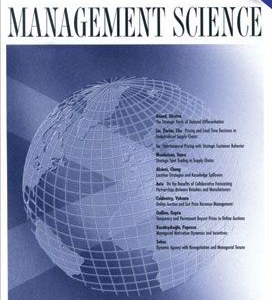
Dur, R., Kvaløy, O. and Schöttner, A. (2022). Leadership Styles and Labor-Market Conditions Management Science, 68(4):3150--3168.
-
Affiliated author
-
Publication year2022
-
JournalManagement Science
Why do some leaders use praise as a means to motivate workers, whereas other leaders use social punishment? This paper develops a simple economic model to examine how leadership styles depend on the prevailing labor market conditions for workers. We show that the existence of a binding wage floor for workers (e.g., due to trade union wage bargaining, minimum wage legislation, or limited-liability protection) can make it attractive for firms to hire a leader who makes use of social punishment. Although the use of social punishments generally is socially inefficient, it lessens the need for high bonus pay, which allows the firm to extract rents from the worker. In contrast, firms hire leaders who provide praise to workers only if it is socially efficient to do so. Credible use of leadership styles requires either repeated interaction or a leader with the right social preferences. In a single-period setting, only moderately altruistic leaders use praise as a motivation tool, whereas only moderately spiteful leaders use social punishment. Lastly, we show that when the leaders{\textquoteright} and workers{\textquoteright} reservation utilities give rise to a bigger income gap between leaders and workers, attracting spiteful leaders becomes relatively less costly and unfriendly leadership becomes more prevalent.